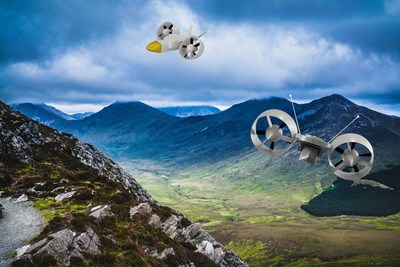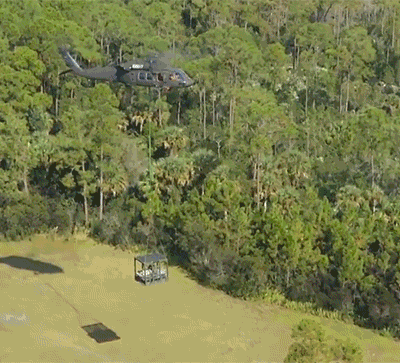
A team of UK engineers are working to develop Sky Hopper, a mid-mass logistics drone that will be deployed in remote locations before flying near urban operations as well. The unmanned aircraft system (UAS) will feature an electrically powered tri fan design that will be constructed at Prestwick in the West of Scotland, according to a news release. The avionics are being developed in Hampshire in South Central England. The team, which includes aeronautical engineers, certification and design specialists, electric machine designers, and advanced battery developers, plans to take a carefully managed step-by-step approach to building the system.
Sky Hopper’s vertical takeoff and landing (VTOL) capability will enable it to service infrastructure in remote areas, bringing spares and components to locations such as wind turbine farms, water pumping stations, mobile wireless masts and electric grid distribution sites, according to the release. The point to point flights also can help with survey and exploration support as well as quickly deliver humanitarian aid via multiple vehicles. The cargo mass load is 100 kilograms.
“Taking a step upwards to an industrial vehicle demands that we innovate across all our disciplines,” said Dr. Richard Brown, the project’s aerodynamicist, according to the release. “We plan to build a series of demonstrators, resolving structural, power and flight control needs.”
Project plans include setting up unmanned delivery networks that put local communities in the positon to become franchisees for aero-parks, according to the release. Multiple Sky Hopper missions will be flown through locally owned assets. By linking them together and to other areas, Sky Hopper will help create revenue for remote communities.
Early prototyping for Sky Hopper has been privately funded. A campaign for further donations, crown funding via Indiegogo and a follow up Enterprise Investment Scheme are all currently underway.
“The commercial potential for UAV operations is huge globally. We’re talking re-supply, infrastructure support and other as yet unanticipated logistical operations,” project lead Eben Wilson said, according to the release. “We’ve got to grasp the future and believe in our engineering expertise.”






